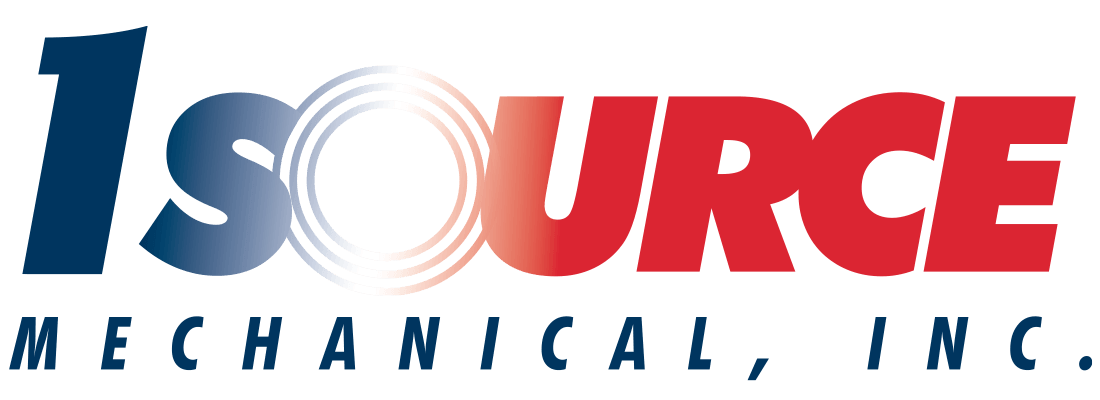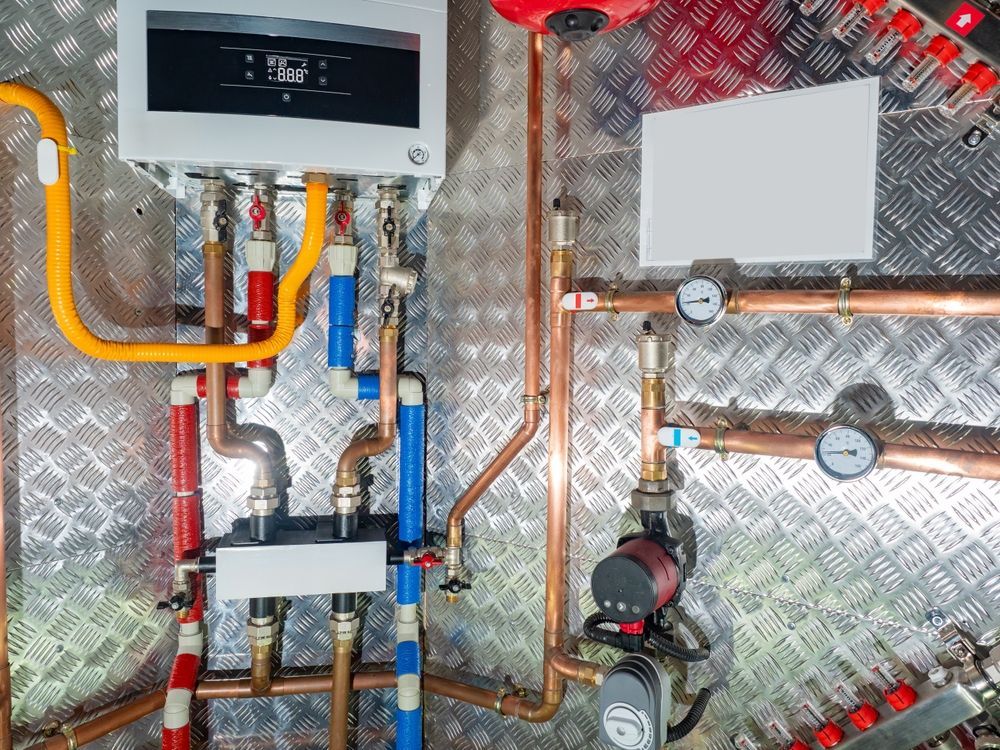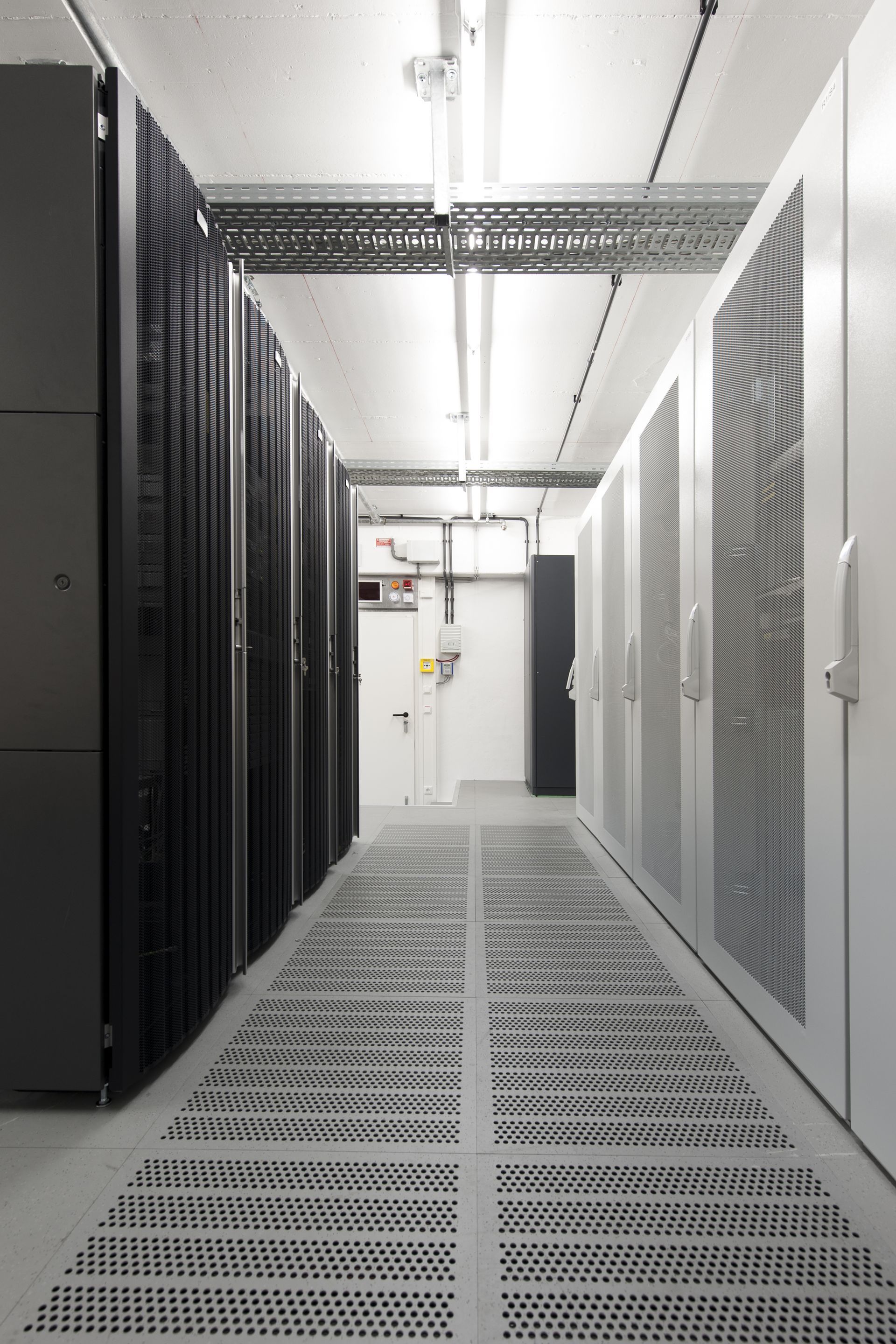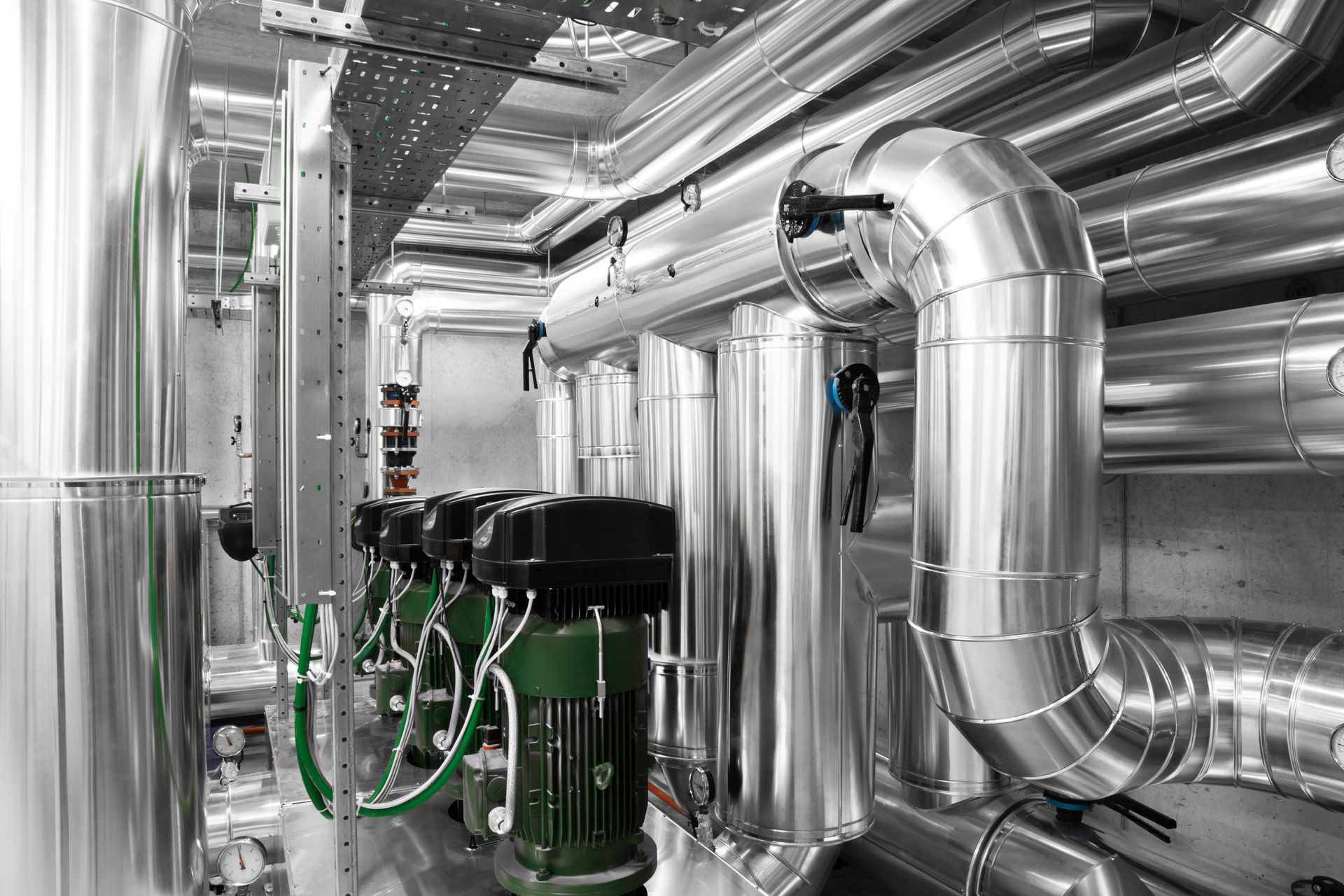Boiler vs Furnace: Key Differences Explained
Written by: 1 Source Mechanical
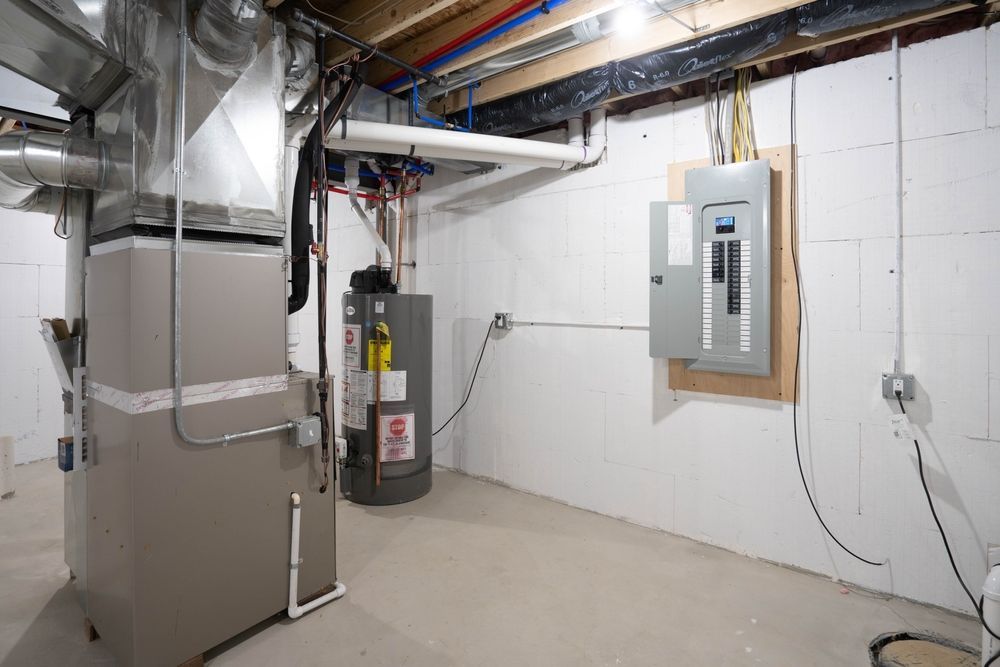
People sometimes use the words “boiler” and “furnace” interchangeably. After all, they are similar: they both heat commercial buildings. However, boilers and heaters are two separate types of heating systems, and there are differences in costs, maintenance, heat quality, and heating efficiency. When considering boiler vs furnace, which is right for you? That depends on your building and your heating requirements.
What is a Boiler?
A boiler system heats with water or steam. The water is heated with gas, oil, or electricity until it is extremely hot, then it is piped to radiant flooring systems, cast iron radiators, or baseboard radiators throughout the building. Rooms are radiantly heated, so there are no fans and no ductwork.
What is a Furnace?
A furnace heats with hot air. It runs on oil, natural gas, propane, or electricity. A strong fan pulls air into the furnace where it crosses a heating element or heat exchanger. The heated air is then circulated throughout the building through ductwork with a blower. Heat is delivered into the rooms at vents and registers.
Differences Between Boilers and Furnaces
The basic difference between the two is that a boiler heats with hot water or steam, and a furnace uses heated air. Boiler water is heated in a tank, and furnace air is heated when it crosses a heating element or heat exchanger. A boiler distributes the heated water or steam through pipes, while a furnace’s hot air is blown through ductwork. Boiler water heat is distributed into the rooms at radiators and/or radiant flooring systems. Furnace warm air heat enters through registers and vents.
Maintenance
To maintain heating efficiency and maximize useful life, both types of systems should be professionally maintained at least annually. Maintenance is also a safety consideration for furnaces, as it reduces the risk of carbon monoxide poisoning through natural gas leaks.
Furnaces have filters that need to be changed monthly or quarterly, depending on how dusty or full of particulates the air is. Boilers have no maintenance requirements beyond annual service.
Heating
Furnace heat, because it is forced with a blower, can sometimes be dry and uncomfortable. Most people prefer the air quality of boiler heat. On the other hand, a building with a furnace comes to thermostat temperature more quickly. Boilers take longer to raise the internal air temperature when the thermostat is set higher.
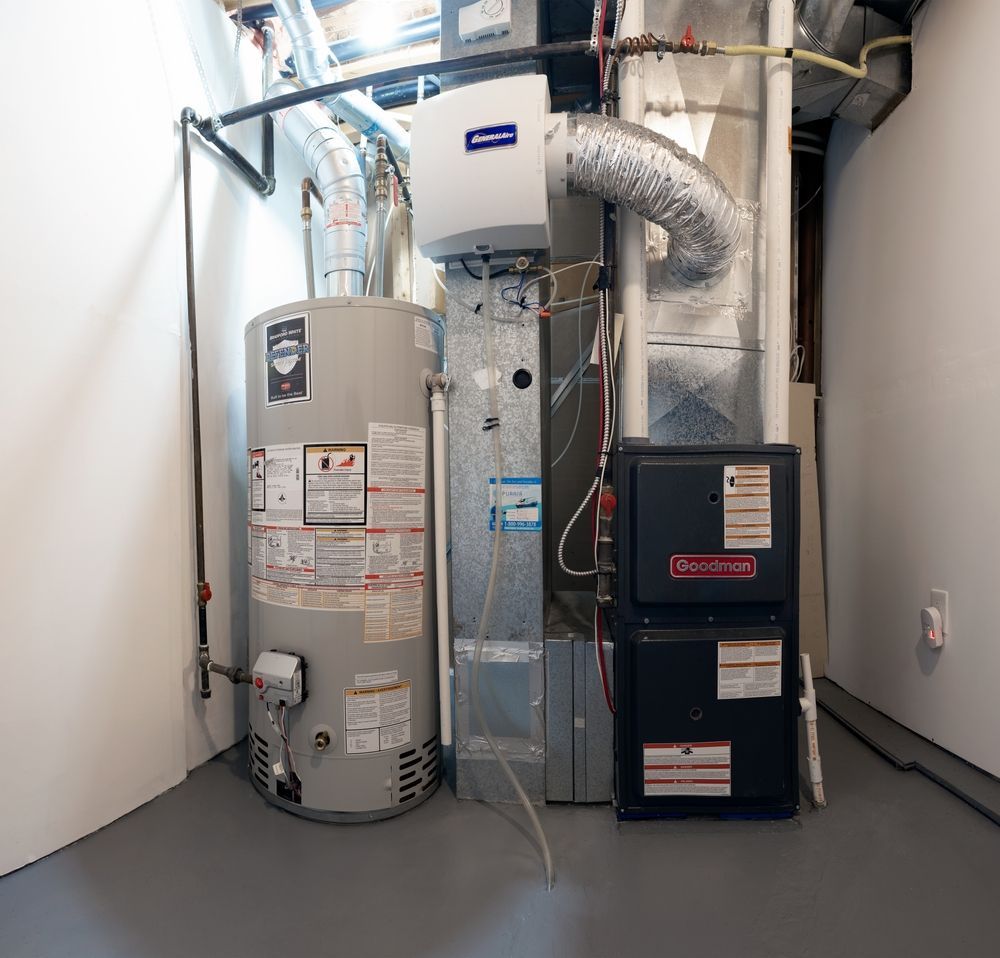
Cost
The initial cost of a furnace is usually lower, and it takes much less time to install than does a boiler. However, boilers tend to run more efficiently. If you keep your heating unit for a long time, the lifetime cost of a boiler can be less.
Energy Efficiency
One way to compare the two is with the Annual Fuel Utilization Efficiency (AFUE) ratings. The most up-to-date high-efficiency furnaces have AFUE ratings of 85 percent or better. Boiler AFUE is more variable, at 80 percent or higher, depending on the fuel source and whether it’s a water or steam boiler. In general, boilers are more efficient because it takes less energy to heat water than it does to heat air.
Pros and Cons of Boilers and Furnaces
In favor of furnaces:
- The time and cost to install furnaces are generally lower.
- Because furnaces don’t use water, there’s less chance of a freeze during a winter power outage.
- Any kind of water leak from a boiler has the potential to cause extensive damage.
- Although furnaces do not cool, furnace ductwork can be used for A/C systems.
- When the thermostat setting is raised, furnaces reach the new temperature more quickly than boilers.
In favor of boilers:
- Furnace ductwork can create a drafty building where dust and dander can spread.
- Natural gas furnaces carry the risk of carbon monoxide leaks.
- The radiant heat from a boiler is generally more comfortable than furnace-forced air heat.
- Boilers are usually less noisy.
- In some situations, boiler-heated water can be reused for laundry and showers.
- Boilers are usually more efficient and require lower energy expenditure.
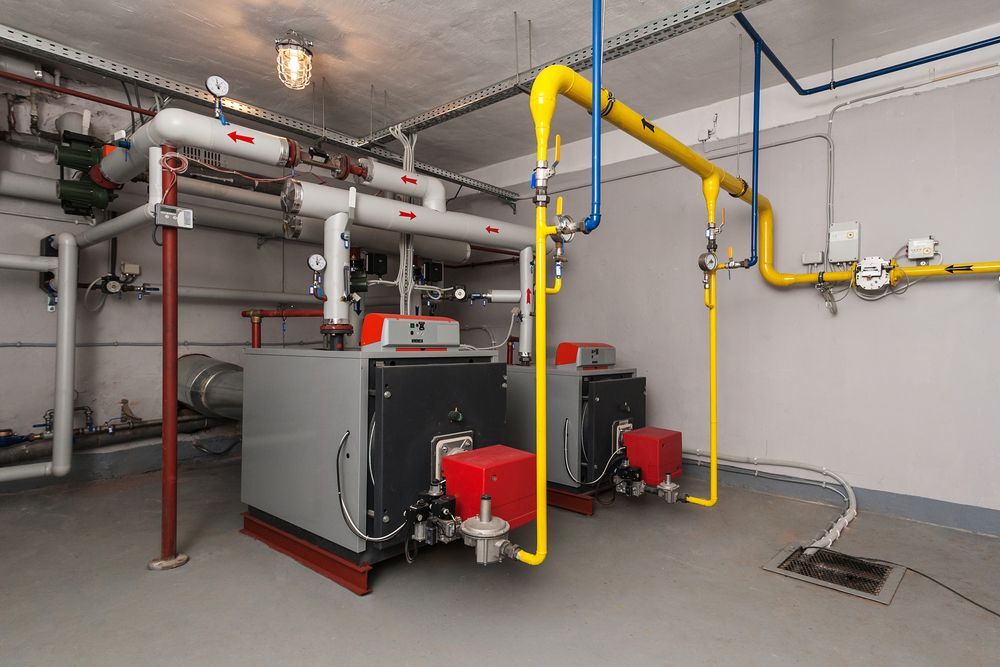
Which One is Better for Your Business?
That depends on your requirements, your budget, and the specifics of the models you’re considering. If you’re replacing a system, it’s often easier to use the same type of system you already own. On the other hand, replacement time is the best time to make a change.
If air quality is one of your biggest considerations, you may prefer a boiler. Boilers are often chosen for large buildings because of their ability to evenly heat large spaces and many rooms.
If you are replacing an older system, a new model of either one is likely to be more energy-efficient than what you currently have.
If you’d like to discuss the pros and cons of your specific situation, 1 Source Mechanical can help you arrive at the best decision.
How to Tell if You Have a Boiler or Furnace
Some of the visible differences:
- A boiler has round pipes, usually copper or iron, while a furnace has large and boxy ductwork.
- Furnaces often extend to the ceiling, while boilers tend to be shorter.
- A building with boilers has radiators or radiant floor heating, while furnaces use vents and registers.
- An internet search on the brand name and model number will tell you which it is.
Contact 1Source Mechanical for Expert Heating Services
Is your commercial boiler or furnace being inspected and maintained regularly? If not, it’s time to call 1 Source Mechanical. We’re your locally owned and trusted HVAC installation, repair, and maintenance company in the greater Chicago area. If you have a problem with your heating system, we’re available 24/7 to get your HVAC up and running and keep it that way.
When it’s time for a new heater or boiler, we’re the experts who can walk you through the options and help you select the ideal solution for your situation. Whether you need repair, maintenance, or an entirely new system, contact us for the experienced service and advice you can rely on.
